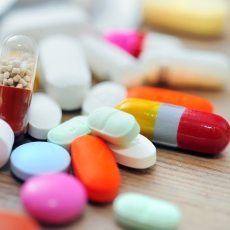
Medicines can treat diseases and improve your health. If you are like most people, you need to take medicine at some point in your life. You may need to take medicine every day, or you may only need to take medicine once in a while. Either way, you want to make sure that your medicines are safe, and that they will help you get better. In the United States, the Food and Drug Administration is in charge of ensuring that your prescription and over-the-counter medicines are safe and effective.
There are always risks to taking medicines. It is important to think about these risks before you take a medicine. Even safe medicines can cause unwanted side effects or interactions with food, alcohol, or other medicines you may be taking. Some medicines may not be safe during pregnancy. To reduce the risk of reactions and make sure that you get better, it is important for you to take your medicines correctly. You should also be careful when giving medicines to children, since they can be more vulnerable to the effects of medicines.
- Medicines (National Library of Medicine)Medicines can treat diseases and improve your health. If you are like most people, you need to take medicine at some point in your life. You may need to take medicine every day, or you may only need to ...
- Over-the-Counter Medicines (National Library of Medicine)Over-the-counter (OTC) medicines are drugs you can buy without a prescription. Some OTC medicines relieve aches, pains, and itches. Some prevent or cure diseases, ...
- Blood Pressure Medicines (National Library of Medicine)... in your diet Avoiding alcohol, tobacco, and illegal drugs Getting enough sleep What if lifestyle changes alone ... your health care provider may prescribe blood pressure medicines. How do blood pressure medicines work? The most ...
- Prescription Drug Misuse (National Library of Medicine)If you take a medicine in a way that is different from what the doctor prescribed, it is called prescription drug misuse. It could be: Taking a medicine that ...
- Drug Use and Addiction (National Library of Medicine)What are drugs? Drugs are chemical substances that can change how your body and mind work. They include prescription medicines, over-the-counter medicines, alcohol, tobacco, and illegal ...
- ... a lot of overlap between the terms "precision medicine" and "personalized medicine." According to the National Research Council, "personalized medicine" ...
- Precision medicine is a growing field. Many of the technologies that are needed to meet the goals of the Precision Medicine Initiative have only recently been developed. For example, ...
- Precision medicine holds promise for improving many aspects of health and healthcare. Some of these benefits will be apparent ... will result from long-term research in precision medicine and may not be realized for years. Potential ...
- Complementary and Integrative Medicine (National Library of Medicine)... medical treatments that are not part of mainstream medicine. When you are using these types of care, it may be called complementary, integrative, or alternative medicine. Complementary medicine is used together with mainstream medical ...
- Drug Reactions (National Library of Medicine)Most of the time, medicines make our lives better. They reduce aches and pains, fight infections, and control problems such as high blood pressure or diabetes. But medicines can also cause unwanted reactions, such as drug ...



